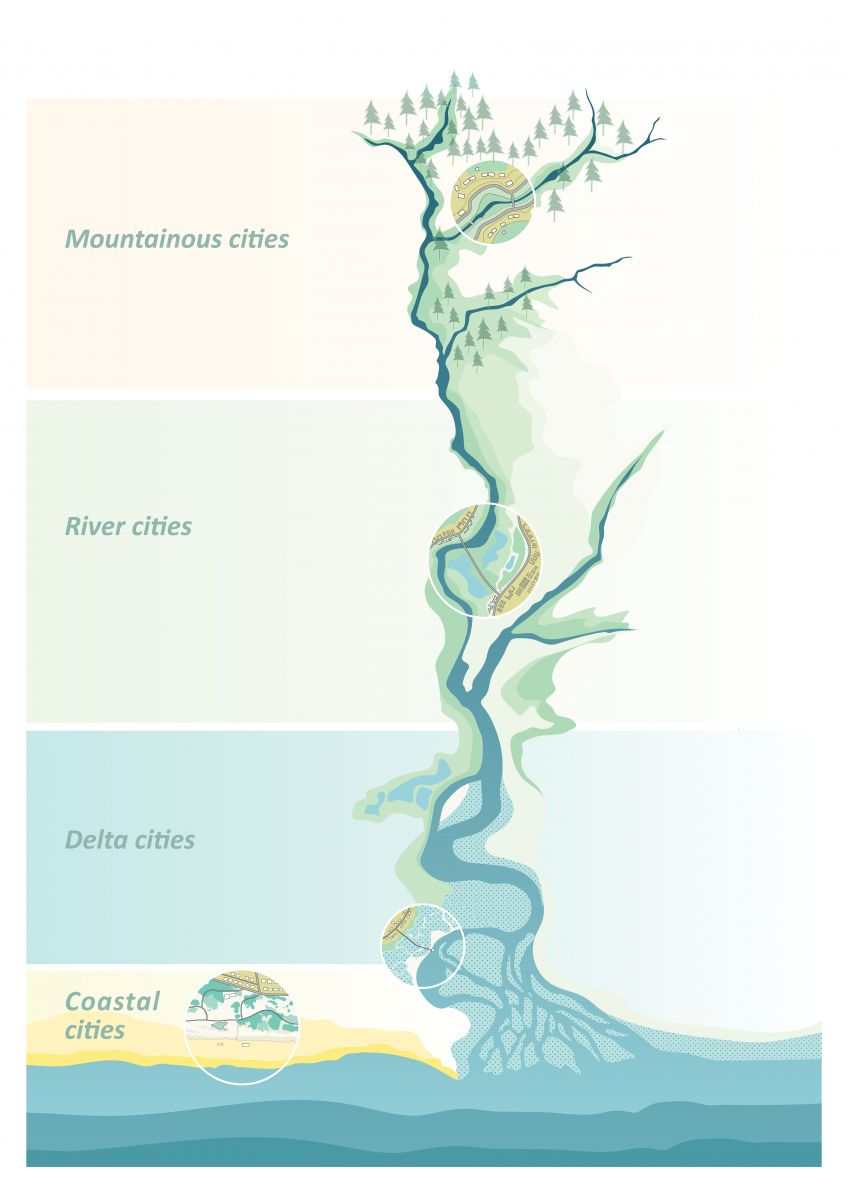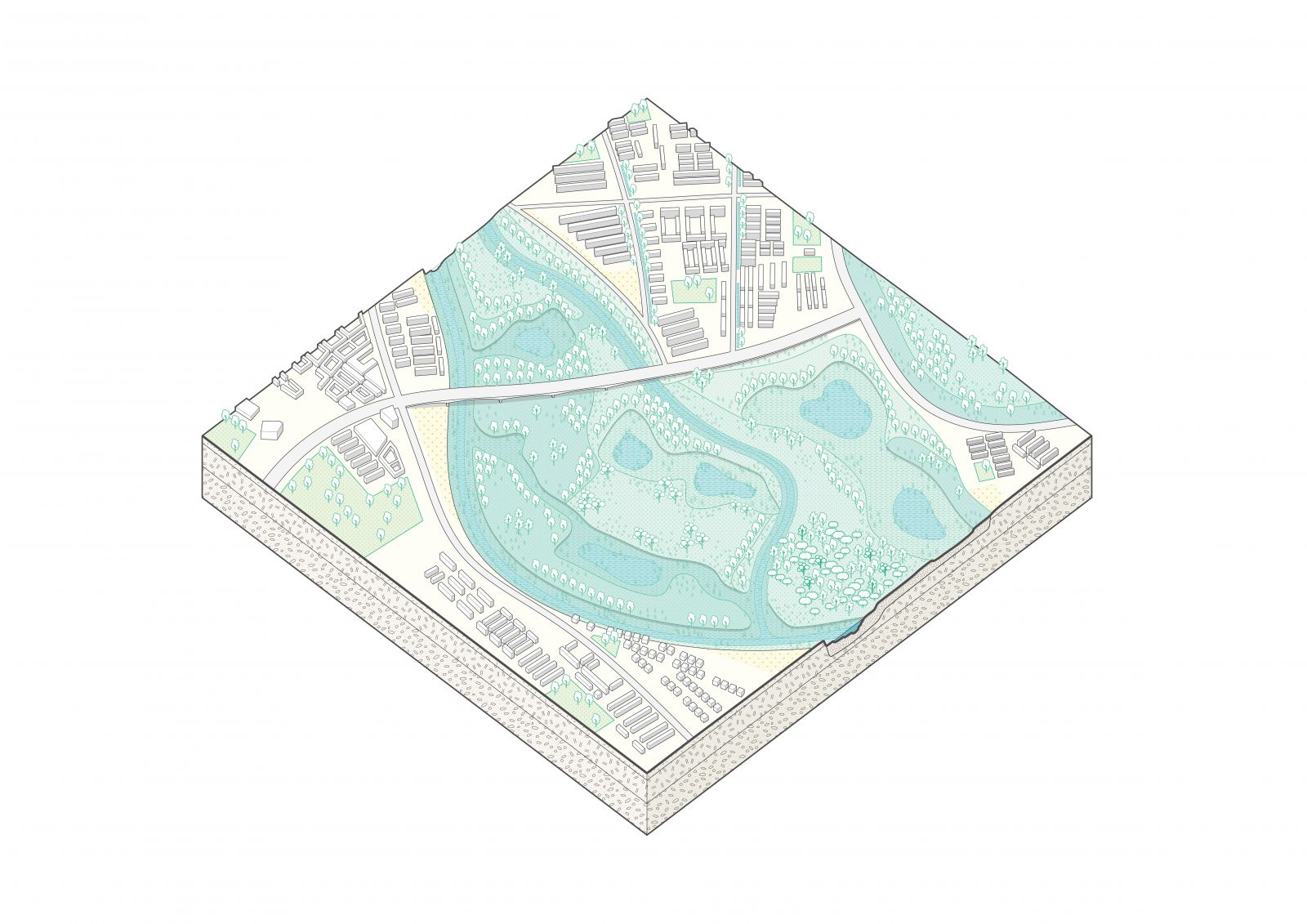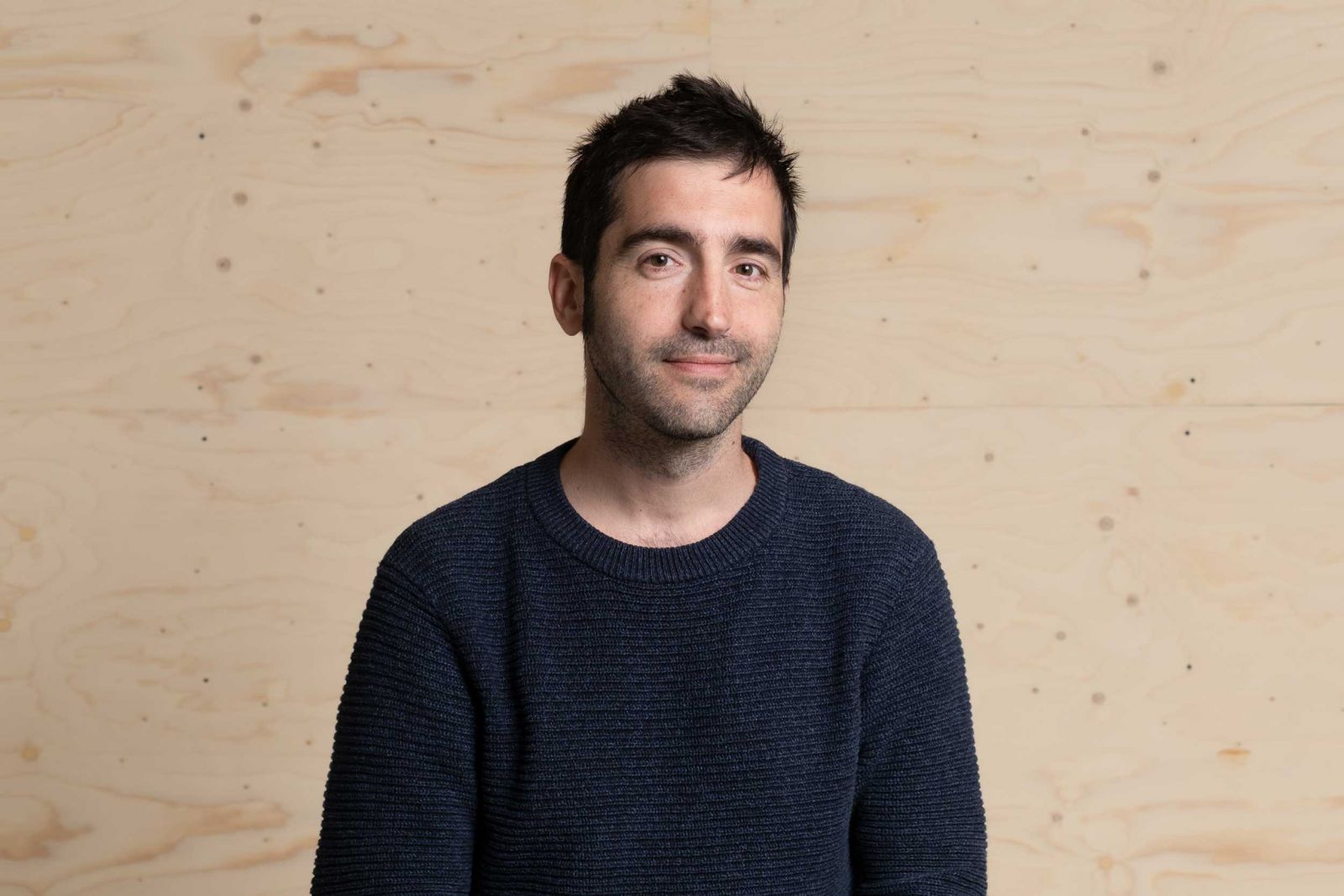Table-2 Table 2 Innovative Rainwater Management
Mariia Semibratova, Guido Farabollini, César Barbarán, Sebastián León, Aadil Patel
The destruction of the Kakhovka Dam in the southern region of the Dnipro River has unblocked the natural water dynamics along the lower segment of the river, revealing its force and natural flows patterns. Despite the extensive damages and widespread flooding that followed, the absence of the dam now offers the opportunity to reconsider the future prospects of the relationship between the natural behavior of the river and the Dnipro delta region.
Although constructing dams has been a widespread practice worldwide for flood prevention, energy production, and water storage, it is crucial to acknowledge that they also entail significant negative impacts. Dams impede the natural flow of sediments and nutrients, obstruct the migration of fish and other wildlife, diminish water quality and oxygen levels, and dismantle the natural functions of rivers.
If natural dynamics are (re)vealed on the lower Dnipro, the question takes on a different perspective that emphasizes a future coexistence of the river dynamics and sustainable strategies to resiliently deal with climate change, develop new economic resources, implement climate-proof agricultural practices, and ultimately promote a sustainable way of prospering in the lower Dnipro area.
Therefore, the research question during the Panorama Ukraine workshop focuses on developing an alternative approach to comprehending river dynamics of the lower Dnipro and investigating how this transition to sustainable river management affects the region's resilience and economy through the implementation of Nature-Based Solutions in short-mid- and long term vision.
The research question sets upon the following steps:
1 Drawing the new flows of the delta Dnipro. How can we visualize the new flows of the delta Dnipro, considering the movement of water without the blocking effect of the dam?
2 Drawing the opportunities for Nature-Based Solutions. What types of NBS can be implemented in the short-term, mid-term, and long-term to enhance the resilience and adaptation of the areas along the Dnipro delta?
3 Drawing a sustainable future. How can NBS influence the future of the region and what types of benefits and alternatives could it bring for a sustainable way of living in the delta?

.jpg)
Goal:
to develop a comprehensive rainwater regulation strategy for both existing and future development in Kherson, Ukraine. The project will create a blueprint that can be adapted and applied to other Ukrainian cities, considering the current absence of such systems in the country.
Themes:
1. Study of the Netherlands’ Best Practices: Analyzing the Dutch approach to rainwater management, including urban planning integration, water-sensitive architectural design, and innovative infrastructure.
2. Local Adaptation: Understanding Kherson’s urban fabric, climate, and water needs to tailor the Dutch practices to local conditions.
3. Sustainable urban environment: Exploring the principles of sustainable landscapes to incorporate rainwater harvesting and use in designs.
4. Creation of a prototype design or model for a rainwater management system suitable for Kherson.
Outcome:
Participants will leave the workshop with a project plan for implementing rainwater regulation strategies in Kherson, setting a precedent for future developments across Ukraine.

Deborah Lambert (1978, BE) is trained as a public space designer and founder of Felixx Landscape Architects & Planners. As managing director, Deborah has the leading role within Felixx. She is responsible for finance, business development and marketing communications. In addition to her work within Felixx, she is an active board member of NVTL and regularly gives lectures that focus on the (increasing) importance of landscape architecture for sustainable development of our cities. Within her designs Deborah focuses on social (metropolitan) challenges.

Eduardo Marin Salinas (1983, ES) is a landscape architect, NBS expert, biologist and head of research at Felixx, since 2023 he joined the management as an associate. Eduardo is an expert in the field of water, climate and sustainability. With his systemic thinking and ecological knowledge, Eduardo plays a crucial role in Felixx’s research projects. He further develops the knowledge of Nature Based Solutions in the agency and ensures its implementation in our projects. Eduardo is the author of the “Catalogue of Nature-Based Solutions for Urban Resilience” – launched at COP26 and commissioned by the WorldBank. He is currently leading the “Water as Leverage” project in Cartagena Colombia, commissioned by the Dutch Enterprise Agency RVO.
 Mariia Andriienko is a landscape architect and partner of KOTSIUBA Landscape Architecture studio.
Mariia Andriienko is a landscape architect and partner of KOTSIUBA Landscape Architecture studio.
At KOTSIUBA since 2010, she has gained experience in every stage of making landscapes, leading some of the firm’s most complex projects as well as its smallest ones. The main focus in her work is the landscape design of urban areas: campuses, squares and plazas, residential complexes, parks, that is coupled with architectural supervision.
Mariia earned a Master of Architecture from Kyiv National University of Construction and Architecture and finished CANaction school, which is specialized in the field of Urban Studies, Integrated Urban Development and Strategic Spatial Planning.
Table 1 Future proof just land use and land ownership
Table 2 Innovative Rainwater Management
Table 3 strategies for regeneration of the river bed and river
Table 4 BACKWARDS FREESTYLE
Table 5 The Space that Water Leaves Behind
Table 6 free fertile land
Table 7 System mind-mapping
Table 8 Great meadow
Table 9 Urgent Urbanism

